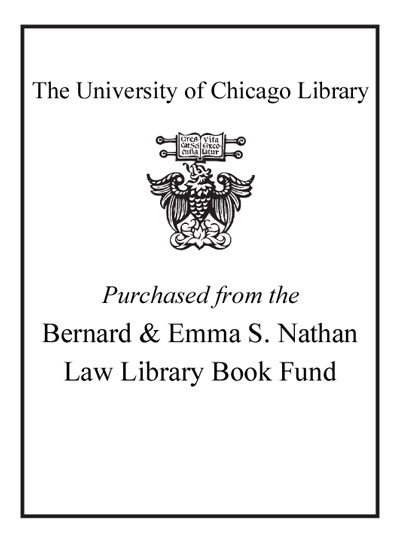Review by Choice Review
Rabban (law, Univ. of Texas at Austin) has produced nothing less than a masterpiece. First, by examining a tremendous number of diverse primary sources, he finds that conventional views of First Amendment litigation and intellectual debate--that they did not seriously begin until WW I--are in serious error. Rabban convinces readers that, between the Civil War and WW I, important speech litigation and controversy occurred regularly in governmental attempts to suppress labor unions, freethinkers, and sex reformers. Second, in the spirit of Richard C. Cortner's The Supreme Court and the Second Bill of Rights (CH, Jun'81), Rabban examines the importance of interest groups, in this case the Free Speech League, in supporting civil liberties litigation. Third, and most important, the author analyzes the transformation of free speech advocacy between the 1870s and the 1920s. Prior to the 1920s that advocacy had taken the form of radical libertarianism found among anarchists and sex reformers who believed in freedom of expression as a necessary component of individual autonomy and dignity. By the 1920s, the ACLU and others had turned it into an advocacy of speech as nothing more than a component of democratic political expression. Failure to understand this transformation accounts for the misguided attempts of current scholars such as Owen Fiss (The Irony of Free Speech, CH, Jan'97) to argue for greater governmental control of speech in order to restrain individualism and achieve those scholars' perception of the greater good. Highly recommended for all readers, general and academic, at all levels. M. W. Bowers University of Nevada, Las Vegas
Copyright American Library Association, used with permission.
Review by Library Journal Review
Challenging the view that free speech controversies and court cases effectively began during World War I, Rabban (law, Univ. of Texas, Austin) focuses on free speech issues between the Civil War and World War I. Through an impressive marshaling of controversies, cases, and litigants, he persuasively argues that libertarian radicalism and the Free Speech League, more than traditional American liberalism and the American Civil Liberties Union, deserve much of the credit for pushing valuable First Amendment issues to the forefront of American social, political, and legal circles. Of particular note is Rabban's treatment of the tension between libertarian radicalism and American liberalism, especially in the context of the debate over the meaning and application of the free speech provision of the First Amendment. This enlightening work fills a void in First Amendment civil liberties studies. Deserving careful scrutiny by scholars and others alike, it is highly recommended for all libraries.Stephen Kent Shaw, Northwest Nazarene Coll., Nampa, Id. (c) Copyright 2010. Library Journals LLC, a wholly owned subsidiary of Media Source, Inc. No redistribution permitted.
(c) Copyright Library Journals LLC, a wholly owned subsidiary of Media Source, Inc. No redistribution permitted.
Review by Choice Review
Review by Library Journal Review

